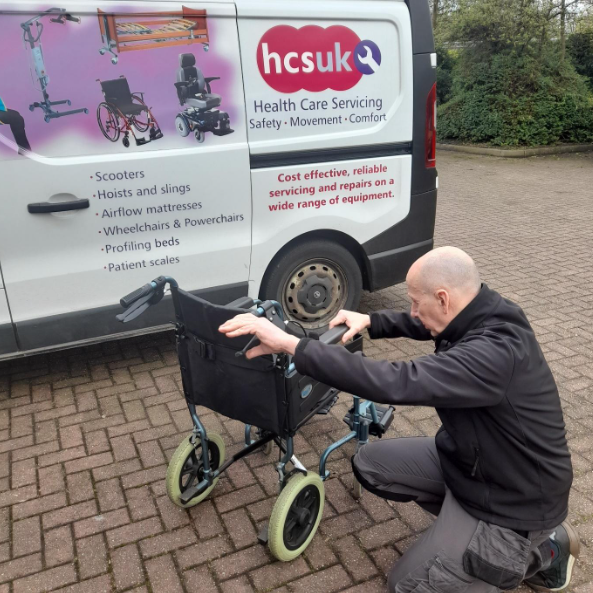The Importance of Regular Maintenance for Wheelchairs and Mobility Aids
Hi there, Phil here from Hcsuk and as a service engineer specialising in care equipment and mobility aids, I've witnessed firsthand the transformative impact that well-maintained wheelchairs and mobility aids can have on residents' comfort and mobility in care settings.
These personal types of equipment serve as vital tools that empower individuals with mobility limitations to navigate their surroundings independently and with dignity. However, to ensure optimal performance and user satisfaction, regular servicing and maintenance is key.
In this article, I'll delve into the significant benefits that regular maintenance of wheelchairs and mobility aids can bring to residents, enhancing their comfort and mobility in profound ways.
1. Ensuring Safety:
Regular servicing and maintenance helps identify and address potential safety hazards or mechanical issues before they escalate. Loose bolts, worn-out tires, or malfunctioning brakes can compromise residents' safety and confidence in using their mobility aids. By conducting routine inspections and repairs, caregivers can mitigate risks and provide residents with peace of mind.
2. Preserving Functionality:
Mobility aids that are well-maintained perform as they should, ensuring smooth operation and functionality. Properly inflated tires, lubricated moving parts, and adjusted seating positions contribute to a comfortable and effortless user experience. Residents can manoeuvre their wheelchairs with ease, promoting independence and autonomy in their daily activities.
3. Enhancing Comfort:
Comfort is paramount for your loved family members who rely on wheelchairs and mobility aids for extended periods of time. Regular maintenance tasks such as adjusting seat cushions, ensuring proper positioning, and replacing worn-out padding can significantly improve comfort. By addressing discomfort promptly, caregivers can enhance residents' overall well-being and quality of life.
4. Extending Lifespan:
Wheelchairs and mobility aids are significant investments. By implementing a proactive maintenance schedule, you can extend the lifespan of them, ensuring that you are maximizing their value over time. Preventive measures such as cleaning, lubrication, and timely repairs can prevent premature wear and tear, reducing the need for costly replacements.
5. Promoting Mobility and Independence:
Well-maintained mobility aids facilitate greater mobility and independence for residents, allowing them to participate fully in social activities, recreation, and community engagement. By removing barriers to mobility, you empower residents to lead fulfilling and active lifestyles, fostering a sense of inclusion and belonging within your care environment.
6. Improving Resident Satisfaction:
Residents' satisfaction with their mobility aids directly correlates with their overall satisfaction with the care they receive. By prioritising regular maintenance and addressing residents' individual needs and preferences, caregivers demonstrate their commitment to providing personalized and high-quality care. A positive experience with their mobility aids contributes to residents' overall satisfaction and sense of well-being.
In summary; regular servicing and maintenance of wheelchairs and mobility aids is not merely a task—it's a commitment to enhancing your residents' comfort, mobility and more importantly, safety! By investing time and resources in proactive maintenance practices, caregivers can create environments that promote independence, dignity, and quality of life for residents who have such mobility limitations.
To discuss your care home servicing needs, why not book a meeting with our Servicing Support Manager Lee here or contact him at servicing@hcsuk.co.uk or call 01773 713713.
Until next time,
Phil.





.jpg?width=352&name=IMG_0623-600x450%20(4).jpg)